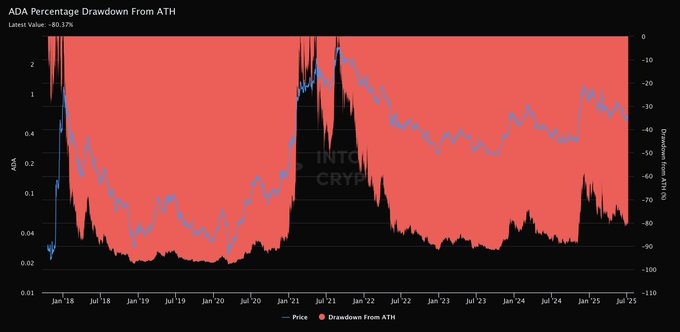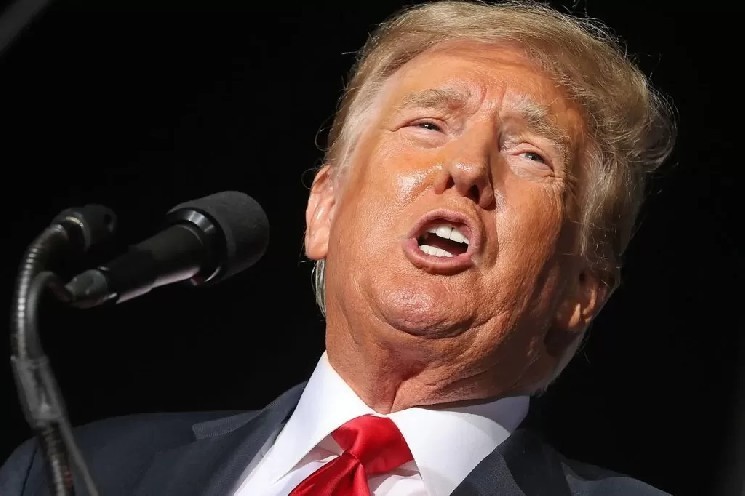The GENIUS Act has triggered a $4 billion stampede into stablecoins, signaling newfound regulatory clarity and investor confidence. Meanwhile, auction house Christie’s is planting its flag in the metaverse, launching a dedicated crypto real estate division. But not all are charging forward. Korean asset managers are pumping the brakes on Bitcoin ETF ambitions, citing regulatory headwinds. Bucking the trend, Injective is tokenizing equity stakes, a bold move suggesting institutional adoption of blockchain is accelerating despite the cautious steps of others.
$4 Billion Flows Into Stablecoins Following GENIUS Act Passage
Fresh off the GENIUS Act’s ink drying, stablecoins are experiencing a tidal wave of capital. DeFiLlama data reveals a staggering $4 billion surged into the market in a single week, catapulting the total stablecoin market cap beyond $264 billion. That’s a 26.9% explosion since January, signaling a potentially seismic shift in the digital asset landscape.

Stablecoin markets captured $4 billion in capital inflows within one week of the GENIUS Act’s final passage. Source: DefiLlama
Regulatory tailwinds ignite corporate stablecoin race. Anchorage Digital vaults into the arena, teaming up with Ethena Labs to unleash USDtb, a federally compliant contender. Not to be outdone, WisdomTree unveils USDW, a stablecoin engineered for institutional titans, signaling a new era of digital finance.
Banking Giants Eye Crypto: Stablecoin Wars on the Horizon?
The old guard is mobilizing. Bank of America’s CEO just dropped a bombshell: a dollar-pegged stablecoin is in the works, fueled by clearer regulatory skies. Not to be outdone, whispers from JPMorgan and Citigroup suggest they’re quietly laying the groundwork for their own crypto contenders. Could this be the start of a stablecoin showdown between Wall Street titans?
Christie’s International Real Estate Launches Dedicated Crypto Division
Forget gold bars, luxury real estate now trades in crypto. Christie’s International Real Estate just plunged headfirst into the future, unveiling its groundbreaking crypto division, as reported by The New York Times. Think bespoke legal eagles, crypto-fluent analysts, and tech-wiz experts all assembled to navigate the blockchain-powered world of high-end property. Spearheaded by CEO Aaron Kirman, this isn’t a tentative toe-dip; it’s a confident cannonball into the crypto-verse, fueled by recent, headline-grabbing cryptocurrency deals. The era of digital keys to physical kingdoms has officially arrived.
Fresh off a record-breaking $65 million Beverly Hills deal sealed with digital currency, Aaron Kirman’s crypto-fueled property empire now exceeds a staggering $1 billion. He’s not just selling houses; he’s pioneering the future of luxury real estate. Among his jaw-dropping listings are “La Fin,” a breathtaking mansion commanding $118 million, and the iconic “Invisible House,” a modern marvel priced at $17.95 million – both ready to be snatched up with crypto.
Crypto Real Estate Gets a Regulatory Boost
Two recent landmark decisions from Washington signal a green light for crypto real estate adoption. First, President Trump inked the GENIUS Act into law, finally laying down federal ground rules for stablecoins. Shortly after, the House of Representatives passed the Clarity Act, offering critical regulatory protection to the broader digital asset industry. These developments remove significant roadblocks, paving the way for wider integration of cryptocurrency within the real estate market.

Christie’s International Real Estate
Forget LLCs, crypto is the new anonymity king for buyers. Mortgage applications just got a lot more interesting – Fannie Mae and Freddie Mac are eyeing your crypto investments. Hold on to your hats, folks, because Kirman predicts crypto will dominate a third of all home sales in just five years. The future of real estate is decentralized.
Korean Asset Managers Withdraw Bitcoin ETF Plans Amid Regulatory Pushback
South Korean asset management giants are pulling the plug on Bitcoin fund ambitions. Samsung, Mirae, and KB Asset Management scrapped plans to launch Bitcoin investment funds through regulatory sandboxes, a setback for crypto adoption in the nation. These firms initially leveraged innovation finance exemptions to explore Bitcoin-centric allocation strategies but ultimately abandoned the projects.
Facing a regulatory brick wall, firms retreated on their push for crypto-backed funds. An attempt to temporarily bypass restrictions that bar virtual assets as underlying investments ran aground after financial authorities signaled strong disapproval. The initiative, aimed at integrating cryptocurrency into mainstream finance, was met with resistance during initial talks, leading to a hasty withdrawal.

South Korea’s crypto landscape could dramatically shift. President Lee Jae-myung, a staunch advocate for digital asset innovation, pledged Bitcoin spot ETFs during his June inauguration. The Presidential Office confirms: get ready for a potential crypto revolution in the Land of the Morning Calm.
Whispers within the industry hint at a strategic maneuver: these crypto ETF filings, though ultimately withdrawn before formal submission, were allegedly designed to test the waters, paving the way for future launches. While the three firms involved remain tight-lipped, insiders suggest this was a calculated play to set a precedent.
Crypto legislation is in limbo, triggering anxieties over policy upheaval. As the Digital Asset Innovation Act hangs in the balance, regulators are hitting the brakes, prioritizing meticulous procedure while a holistic crypto strategy takes shape. The message is clear: no reckless moves until the blueprint is complete.
Korea’s crypto ambitions are taking a calculated pause. Forget a sprint; the nation is pacing itself, strategically retreating to re-evaluate the shifting regulatory terrain. Whispers from officials suggest a carefully orchestrated unveiling of virtual asset products, timed after the ink dries on new crypto legislation. Circle Q2 2025 on your calendars – that’s the potential launch window for Korea’s grand entrance into the next phase of the crypto market. Patience, it seems, is the name of the game.
Injective Protocol Tokenizes SharkLink Gaming Equity Stakes
Injective ignites a new era for blockchain finance, launching its Digital Asset Treasury (DAT) with a splash! Forget dusty boardrooms, imagine owning a slice of Ethereum investment firm SharkLink Gaming, right on the blockchain. Injective is making it a reality. The debut offering? ‘$SBET,’ a tokenized equity that pulses with real-time value, trading directly on Injective’s blazing-fast on-chain rails. This isn’t just tokenization; it’s a revolution.
SharkLink Gaming isn’t just playing games – it’s playing the crypto market like a pro. New data from Strategic Ethereum Reserve reveals they’re the second-largest corporate whale in the Ethereum ocean. This massive tokenized holding highlights Injective’s bold move to fuse traditional finance with the wild frontier of decentralized ecosystems. Forget pixels, SharkLink is dealing in serious digital assets.
Forget clunky asset wrapping. DAT-based tokenization isn’t just about trading; it’s about power. We’re talking built-in governance and seamless liquidity across multiple blockchains. Imagine equity-backed digital assets trading around the clock. That’s not a future promise; it’s the new standard we’re setting.
This development signals expanding institutional adoption of blockchain-native financial instruments, demonstrating practical applications for traditional asset digitization within DeFi frameworks.
Shigeki Mori contributed.
Thanks for reading $4B Into Stablecoins Crypto Real Estate Korea BTC ETF Halted and More
